Leveraging Jamaica’s ‘Soft Power’ (Part 1/2)
By Hume N. Johnson, PhD
This is the first of two posts that I will use to focus on Jamaica’s soft power. They are based on a presentation I delivered on February 20- 21, 2013 at the Opening of a Sports Museum at the GC Foster College of Sports and Physical Education – the first of its kind in the Caribbean, following which was a Sports Symposium where academics, politicians and sports professionals gathered to discussion the development of sports in Jamaica. I talked about what Jamaica can do its leverage its soft power in the world through Sport. But first, drawing from the examples of Australia and India, I tried to help my audience to make sense of the notion of ‘Soft Power’, first purported by American Political Scientist Joseph Nye in 1990 – and to illustrate where Jamaica’s soft power lies.
******
November last year Carole Beckford (former publicist for track and field icon, Usain Bolt) and I traveled to Salzburg, AUSTRIA a quaint city on what could be called the back porch of Europe. Salzburg is the birthplace of one of the world’s greatest classical music composers – Mozart. Salzburg is also the city where the famous film ‘The Sound of Music’ was made. And …Salzburg does let anyone forget these two things that made it famous. Every nook and cranny of that city was littered with Mozart and the Sound of Music. Streets and place are named after Mozart -Mozart Museum and Exhibits; Mozart Memorabilia everywhere from airports to the street corner man selling cigarettes. You could get a dish named after Mozart in a restaurant. You could go to the Opera to hear performances from Mozart’s classic pieces. You could go on 4-hour bus tour of the Sound of Music locations with the sound track in toe.
I am saying all of this to say Jamaica also possesses a one of the world’s most iconic artistes, Bob Marley, who introduced to the world an entirely new form of music, Reggae. Jamaica is also the home of the world’s fastest sprinters, Usain Bolt, Asafa Powell, Shelly-Ann Fraser-Pryce and Veronica Campbell –Brown. Jamaica also provided the inspiration for one of the world’s most popular and unforgettable films, ‘Cool Runnings’. Yet, we seem to prefer that the world forgets. Why else would we leave the responsibility of our nation brand to others? Simon Anholt who introduced the concept of ‘nation brand’ forsees a day when the most important aspect of foreign policy will not be defense or trade but rather image and reputation. That day is already here. Nations are busy banking on their reputation.
Brand Australia
Take Australia for example. Prior to living in the United States, I spent 7 years living and working in Australia (and New Zealand). Australia is undergoing a major re-branding. The goal is move beyond their traditional image as a land of “beach, surfing, beer” and crocodiles to creating a identifiable national trademark. Of course Australia doesn’t mind its image as fun-loving, hardworking and sports-obsessed but it also wants to be perceived as a progressive society – as a place for high quality education, a leader in conservation; and an economic force in the Asia-Pacific region. Currently, they are taking advantage of Asia-Pacific tourism, specifically the increasing mobility of mega-populations such as China. Australia’s attempt to construct an effective national brand image has begun to take root and has begun to reap rewards. In 2012, the Reputation Institute’s Country Survey ranked Australia as second out of 50 countries on economic, social and aesthetic factors.
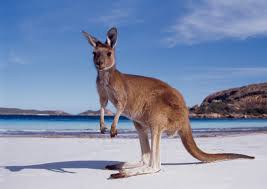
Australia is well known for its commitment to conservation through the work of late Australian Steve Irwin.
The Executive Director of the Australian Trade Commission (Austrade), Tim Beresford – the organisation set up to assist Australian businesses to contribute to national prosperity by succeeding in trade and investment (much by what JAMPRO was conceived to do) understands the importance of a strong country brand. ‘The more others trust, admire and respect Australia, the more they are likely to invest in our people, ideas and products and to send their children to study in our Universities”, he says. Australia’s approach, Tim Beresford argues, has not been to spend tens of millions of dollars on advertising (their beaches and surfers) but to tell the story of Australia through its people. For example, Australian expats living overseas have done a lot to underwrite Australia’s cultural prosperity and international reputation. A new orgnisation called ‘Australia Unlimited’ (funded by government) development – in response to global research which demonstrated that Australia’s global reputation – was based more on its physical attributes than its intellectual ones. Australia now undertakes a series of ‘soft power’ initiatives designed to show that it is a nation rich in cultural, scientific and business talent. Events are designed to promote Australian food, wine, tourism, entertainment and business. They leverage Australia’s growing list of stars in Hollywood; the recent sharp rise of the Australian dollar, its trade relationship with regional neighbour China and its first class education services to move beyond tourism and reinvent Australia as a global competitor and a nation of knowledge and innovation.
Re-Inventing India
Another example is INDIA. I was listening to a speech recently, given by Indian novelist Shashi Tharoor. Tharoor was the former Indian Minister of External Affairs charged with helping India to engage with the world. He remarked that India is fast becoming a superpower — not just through trade and politics, but also through its “SOFT POWER” – its ability to share its culture with the world through food, music, technology an Bollywood (India’s very successful film industry). Tharoor argues that in the long run it’s not the size of the army that matters as much as a country’s ability to influence the world’s hearts and minds – to prosper through the power of example –expertise, knowledge, culture and entertainment, progressive values. As a political analyst, I am attracted to the idea of “Soft Power”. When American political scientist, Joseph Nye, first used this term in 1990, he was referring to the need for America to take stock of its use its hard power (militarism and war) (to conquer others) and engage more in ‘soft power’ – its culture, its values. The Iraq war for example was a stunning victory for America in terms of its hard (military) power, but it costs the United States dearly in terms of its soft power – its ability to attract others – allies, friends; to be perceived as legitimate, great and progressive.
For me this speaks volumes about ‘reputation’ and the increasing importance of reputation capital. Each nation today is trying to build or improve its reputation – in order to attract investments, students and tourism. Reputation capital has always been important but even more so now in global information age – where negative and positive stereotypes are out there for the world to see. Information is power and Jamaica has to engage in a real process of nation branding, taking account of how we communicate the nation; challenge negative perceptions and reframe the national self-image in a global era. Yet Jamaica’s political leaders have spent little time absorbing how the nature of power has changed and have yet to incorporate the “soft” dimensions of power into political strategies and public policy.
So I am proud to bear witness to the opening of this Sports Museum because it suggests our capacity to think and operate differently; to frame and project our nation in different ways; Hopefully when you begin to illustrate what is possible, Jamaica House/OPM will follow. Ladies and gentlemen – I have spent a lot of time in recent months thinking about and speaking about Jamaica’s nation brand; how the nation can actively and proactively engage with the world. Rather than wait around for VW to make another ad, which though it casts another aspect of our culture into the global spotlight, really oversimplifies us, and embeds a stereotype of Jamaicans which I do not believe is altogether complimentary. We can take charge of leveraging our own soft power. Today I want to talk about one under-explored aspect of Jamaica’s soft power – Sport – Sport already acts as a kind as Global Diplomat for Jamaica. How can we then use Sport to Leverage Jamaica’s Soft Power in the world.
Is Jamaica a powerful country? Is Jamaica a Superpower?
 A country is considered powerful if it has a relatively large population and territory, extensive natural resources, economic strength, military force and social stability (Nye, 2001). In terms of:
A country is considered powerful if it has a relatively large population and territory, extensive natural resources, economic strength, military force and social stability (Nye, 2001). In terms of:
POPULATION: Jamaica being a mere speck on the world map, inhabited by only 2.7 million people does not make us very powerful.
NATURAL RESOURCES: Bauxite – Dirt (I understand Mining Minister Phillip Paulwell is now looking for rare minerals in our red dirt to sell overseas).
ECONOMIC STRENGTH: 1% growth; inflation; massive joblessness
MILITARY FORCE: In all fairness our military strength has never been tested. Compared to national armies around the world, JDF is hardly a force to be reckoned wit.
SOCIAL STABILITY: Mushrooming crime (including multiple killings, civil unrest, deteriorating economic situation exacerbate social crisis and it sometimes feel like the country is ungovernable.
But Jamaica can aim to contribute powerfully to the world and achieve prosperity through the appeal of its culture – from its dialect, music, and dance to its food; and through what Indian novelist Shashi Tharoor calls ‘THE POWER OF EXAMPLE”- through its Soft Power:
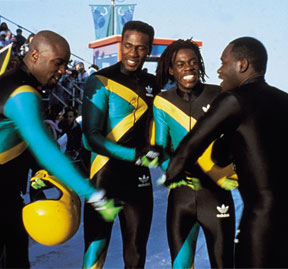
Members of the cast of ‘Cool Runnings’, the popular Disney Film about the exploits of the Jamaica bobsled team at the Winter Olympics in 1988
- Bob Marley took Reggae to every corner of the globe and positioned Jamaica as a progressive nation with enlightened ideals – social justice, equality, peace, and he globalised outrage against racial & social oppression.
- VW restored pride in the Jamaican language – which btw – had not gone dead but had lost its global appeal. Even the commentators in the Jamaica – Mexico World Cup Qualifying Game in the Azteca recently were doing their version of patois.
- National Geographic named Ackee and Saltfish second best National Dish in the World. Devon House – among the top 5 places in the world to eat ice-scream.
- Blue Mountain Coffee, Jamaican Jerk, Red Stripe, Ginger Beer have all become global export commodities. Jamaican Patty is slowly making its way into the global marketplace. (According to Nation brand theory “Products produced by a country are powerful ambassadors of each country’s image. Exports commodities become part of a nation’s brand. If they are good quality products, they become part of the brand image of the nation).
- Beyonce globalised the ‘Dutty Wine’ at America’s SuperBowl in 2013. But unless people associate her dances with Jamaica, then it does nothing for the nation’s brand.
- Way before this – The Film Cool Runnings about the triumph of the Jamaican bobsled team at the 1988 Winter Olympics in Canada took Jamaica and Jamaican values to cinema screens on every continent.
THIS IS WHAT IS MEANT BY SOFT POWER. This is Jamaica’s Soft Power. How do we THEN leverage this ‘soft power’ through Sport?
I continue this presentation in another post entitled ‘Leveraging Jamaica’s Soft Power Through Sport.
________________________________________________________________________________________
Dr. Hume Johnson is a Political Analyst and Professor of Public Relations. She writes and speaks extensively on nation brand, civil society, governance and social movements. Her book Challenges to Civil Society: Popular Protest and Governance in Jamaica is published in 2011 by Cambria Press.

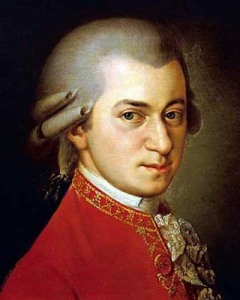
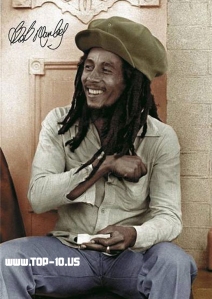
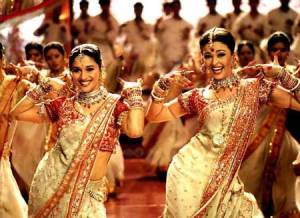

Pingback: Music on the Move Discos - Blog Post - Music on the Move Discos
As a Jamaican, I am happy that this article was written, but it has one major drawback. It lays the entire responsibility of developing commercial brands for consumer goods, specifically, clothing , shoes and food at the feet of the government. Government? Neither Nike, Adidas or Puma are government entities. Bolt should have run under his own name, because long term he will be a legend. The manufacture and design of sneakers is an enormous industry, which should very well be located in Jamaica and provide jobs. Bolt and others needs to control trademarks as direct owners and advance them worldwide. Kani, Fubu, Mecca and others did it without controlling the platform of the Olympic finals every four years. Africa and Nigeria in particular will dwarf Europe and America as youth consumer markets for the next 10 to 30 years. Bolt’s lifetime. He should position himself not Puma for that market. Notice they dress African teams in the World Cup. More Africans watch us now than ever before. Puma knows this. I could go on and on. We need to play a better private business owner game and not cede our position to “government” like mindless leftists.